Eight faculty members receive Provost's Awards for Distinguished Scholarship
By Anne Ju

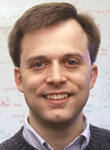
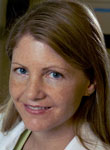
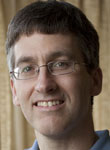
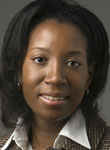
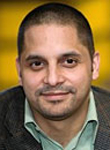
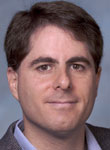

Provost Kent Fuchs has announced the eight winners of the Provost's Award for Distinguished Scholarship for 2010. The $30,000 awards recognize outstanding tenured faculty members early in their careers for distinguished research and scholarly achievements, combined with their continuing commitment to Cornell.
Brian Crane, associate professor of chemistry, studies biological systems that link molecular reactivity and signaling events to biological behavior. He is known for identifying key biological problems and unraveling their complexity with a range of interdisciplinary approaches. Crane has made major contributions to understanding how transmembrane receptor systems assemble and signal, how and why bacteria produce nitric oxide, and how light signals are propagated by circadian clock light sensors.
Laura Harrington, associate professor of entomology, conducts research that impacts global health, mosquito biology, epidemiology and disease evolution and ecology. She has also made significant contributions in teaching with such courses as Medical and Veterinary Entomology, Plagues and People, and Malaria Interventions in Ghana while serving as a mentor to undergraduate research honors students.
Chekesha Liddell, associate professor of materials science and engineering, studies the synthesis and assembly of non-spherical colloidal particles. Her research program takes a calculated yet risky approach to address long-standing problems in the field, and her research group is now recognized as a leader in assembly of non-spherical particles.
David Muller, professor of applied and engineering physics, is being honored for his work in the atomic scale characterization of interfaces. In 2006 he received the Burton Award, which is given to the best electron microscopist under the age of 40. Muller is also co-director of the Kavli Institute at Cornell for Nanoscale Science.
Andrew Myers, associate professor of computer science, studies security, programming languages and systems -- a key area for national security where he is known for one of the most successful approaches to security -- limiting information flow. His group has developed the Jif programming language and type system, the Jif/Split system and the Swift system and the Civitas voting system for secure Internet voting.
Ted O'Donoghue, professor of economics and a behavioral economist, develops formal models and tests them with novel data sets. His research incorporates insights from psychology to build richer models of individual behavior than are traditional in economics, focusing on self-control problems. O'Donoghue has also served a member of the Provost's Social Science Task Force and of the College of Arts and Sciences' Academic Planning Committee.
Eduardo Peñalver '94, professor of law, studies property law and land use at Cornell Law School, where he is a leading voice in the "Property and Community" movement. He shows how property law creates or reinforces communal bonds and how property rights mediate the relationship between individuals and communities. Peñalver is also the faculty director of research, in charge of the Law School's workshop series and mentoring program. A former Rhodes scholar, he attended Yale Law School and held a Supreme Court clerkship with Justice John Paul Stevens before returning to Cornell.
Cynthia Robinson, associate professor of art history, studies the relationships between religion, literature and art in the Mediterranean world. Robinson's forthcoming book, "Imag(in)ing Passions," crosses the boundaries between Christian and Islamic spirituality between medieval Iberia and the rest of Europe. Robinson also serves as director of undergraduate studies in art history and is the recipient of an Appel Teaching and Research Award.
Nominations for awards were made by the college deans, and a committee of vice provosts, chaired by Fuchs, made the final selections.
Get Cornell news delivered right to your inbox.
Subscribe